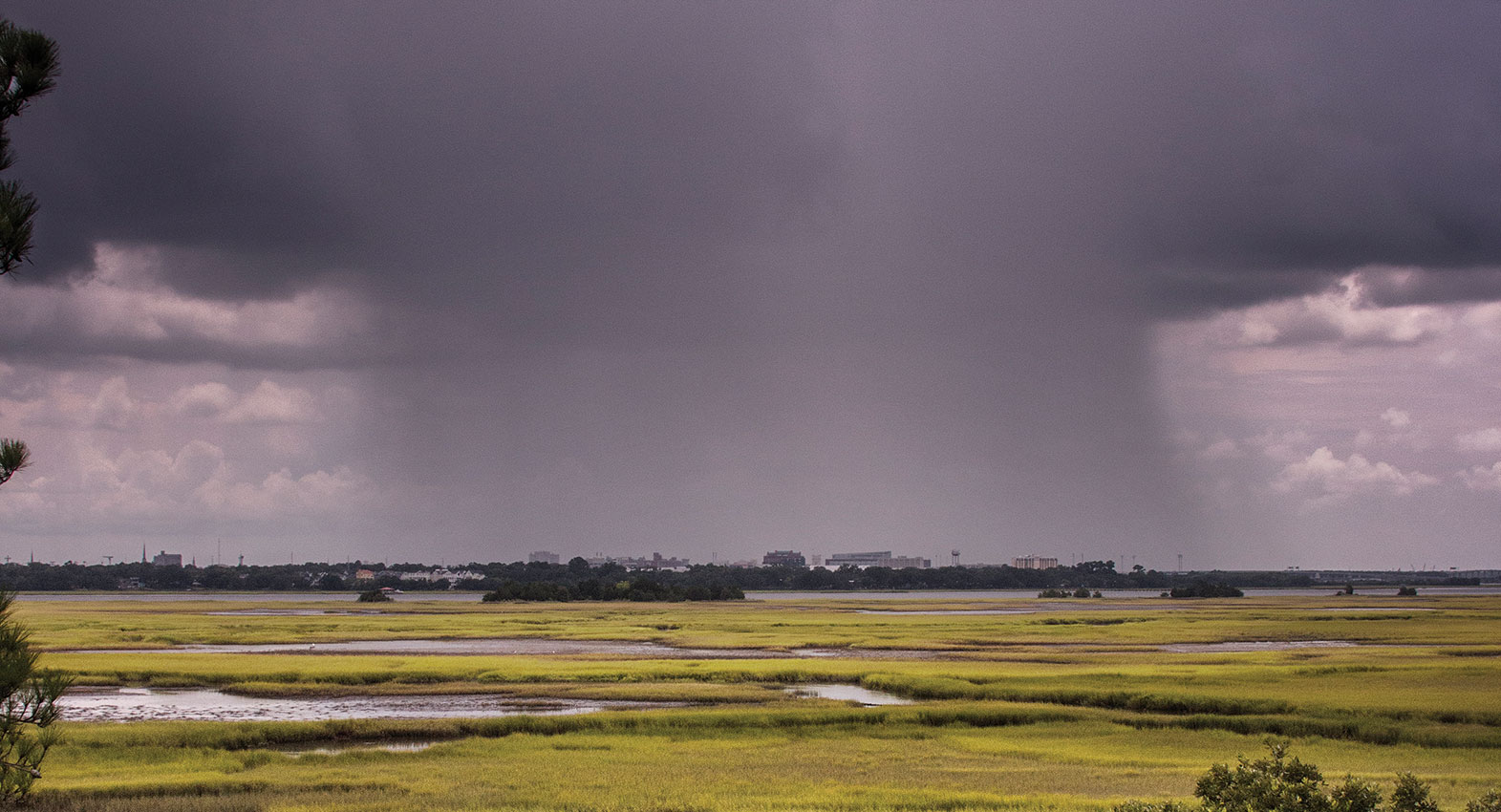
The calendar page has flipped over to August, and that means the beginning of peak hurricane season.
The official Atlantic hurricane season is June 1 through Nov. 30, but the peak season began Aug. 1, with the busiest time for storms coming in September, according to Bill Walsh, chief meteorologist for WCSC-TV in Charleston.
That means families and parishes along the coast need to be ready for how they will handle a storm and its aftermath.
It is important to make preparations ahead of time because tropical systems can form suddenly and threaten quickly.
Walsh, who attends Blessed Sacrament Church in Charleston, remembers giving a presentation about hurricanes to members of Stella Maris Church on Sullivan’s Island a week before Hurricane Hugo devastated the area in 1989.
“I was telling them that the island could be covered by 10 to 12 feet of storm surge in the case of a storm, and just a week later that was the reality here,” he said.
Catholic Charities offices around the state will work with local governments and organizations to help people in areas affected by any disastrous storms, according to Deacon Gabriel Cuervo, interim director. One of the main centers of assistance will be the Pee Dee office in Conway, where workers have had plenty of experience in disaster recovery after dealing with the record floods last fall.
Kelly Kaminski, regional coordinator for Catholic Charities in the Pee Dee, said they partner with local emergency management divisions to make sure correct information is included in hurricane guides prepared for local residents. Catholic Charities will also be ready to provide food and cleanup kits and help with other emergency needs after any storm that hits the area, Kaminski said.
Walsh said many parishes along the coast have their own hurricane plans in place, and some publish guides for parishioners, such as St. Michael in Murrells Inlet. The church also regularly runs a hurricane prayer in its bulletin during storm season.
Walsh said one important thing parishes can do is compile a list of members, especially senior citizens, who might not have family in the area or would have trouble evacuating.
“It’s always good to know your neighbors, to recognize people that may have mobility issues,” Walsh said. “Churches are good at looking out for people, and it wouldn’t hurt to have a roster in the parish of higher-risk members who might need help before, during and after a storm.”
The meteorologist said there are four important things everyone needs to do during storm season:
Know where you are in relation to the highest threat area. “Your plan is going to need to be different if you live along a barrier island, which is under the highest threat from a hurricane, than it would be if you lived inland,” Walsh said. Understand the height of your neighborhood related to possible storm surge, because this surge of water is the biggest killer during a storm.
Have a family plan. Know the evacuation routes your family will use if you leave ahead of a storm and know where you would go once you leave the area. Learn hurricane shelter locations if that would be your planned destination, or know where else you would stay, whether at a friend or relative’s house or a hotel. Have contact numbers readily available and a meet-up place planned if the family is separated.
Prepare your home and supplies. Stores get crowded and essential items fly off shelves as a storm approaches, so it’s best to have a supply kit in place ahead of time. Gather essential items such as non-perishable food, batteries, lanterns and flashlights, a battery-powered radio and bottled water, and store them in waterproof containers. Make sure to have important papers, extra medications and cash on hand in case a storm approaches because ATMs don’t work if the power goes out.
Remember to include your pets. Most shelters don’t allow pets unless they are seeing-eye dogs or service animals, so have a plan of somewhere to evacuate that will accept your animals. Prepare a pet-survival kit to take with you, which includes a carrier, proper ID and collar, medications, proof of vaccination and rabies tags for dogs or cats, at least a 14-day supply of dry food, water and food bowls and other supplies your animals will need.
Some websites with information about hurricane prep:
- South Carolina Emergency Management Division 2016 hurricane guide.
- Printed copies of the guide are also available at Department of Motor Vehicles offices in coastal counties, at South Carolina welcome centers, and at Walgreens’ stores.
- American Red Cross publishes a concise hurricane prep checklist.
- More detailed guides are available at the Red Cross website.
- FEMA even offers a free app that gives weather alerts from the National Weather Service for up to five locations across the country. It also offers safety tips, an area for disaster reporting, maps, and a section on how to apply for assistance. It is available in Spanish and English. It is free in the App Store for Apple devices and Google Play for Android devices.
Hurricane prayer
O Heavenly Father, all the elements of nature obey Your commands, including hurricanes. Calm the storms that threaten us and turn our fear of Your power into praise of Your goodness. Grant this through Our Lord Jesus Christ, Your Son, Who lives and reigns with the Holy Spirit, one God, forever and ever. Amen.



